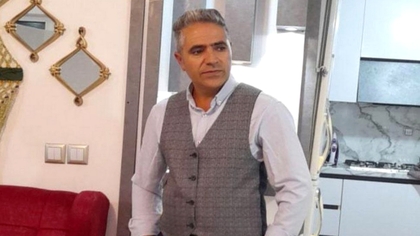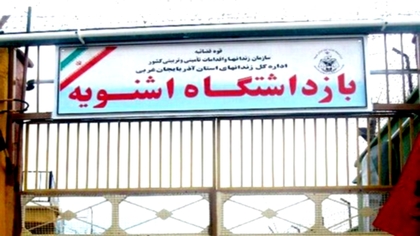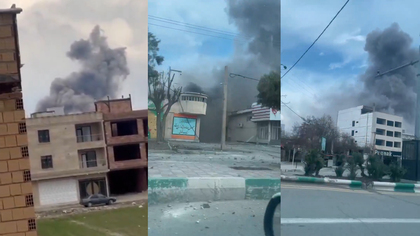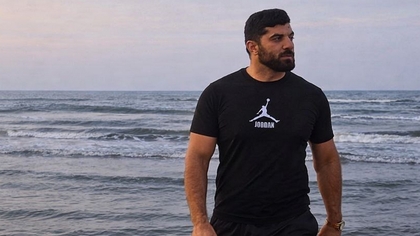Mahabad; Samran Raak, Kurdish Soldier, Committed Suicide Two Days After Leave + Statistics and Interview
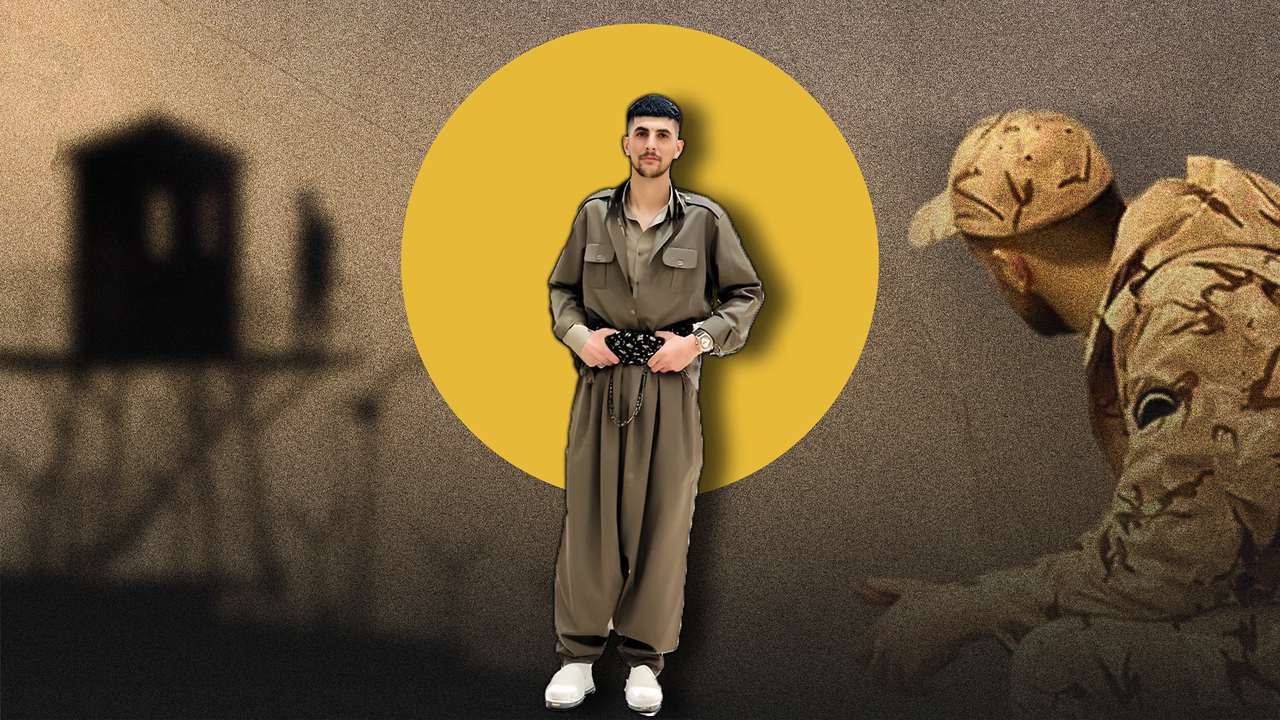
On Friday, 9 May 2025, a Kurdish conscript from Mahabad named Samran Raak, who was serving his mandatory military service in Qazvin, committed suicide by hanging himself at his family home just two days after returning from leave.
According to a knowledgeable source who spoke to Kurdpa, Samran Raak was serving in the 116th Brigade named after Major General Martyr Ali Safavi, based in Qazvin. While only two months remained until the end of his service, he committed suicide at his family home after returning from leave, for reasons that have not yet been disclosed.
The suicide of Samran Raak is the first recorded case of suicide among Kurdish conscripts in the year 1404.
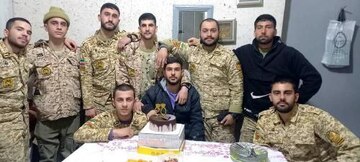
Including this case, a total of 41 Kurdish conscripts have committed suicide since 1391.
13 Years of Data: 41 Suicides Among Kurdish Soldiers
According to data registered by the Statistics Center of Kurdpa Human Rights Organization, from the beginning of 1391 to 29 Ordibehesht 1404, at least 41 suicides among Kurdish conscripts have been recorded.
- 35 individuals committed suicide while on active duty, and
- 6 others did so while on leave.
- Among 31 cases where the method of suicide was identified, over 74% were carried out using military-issued weapons.
- 85% of these suicides occurred within military bases or service sites.
- In less than half of the cases, a clear reason was stated—which reflects the secrecy and lack of accountability mechanisms within the military institutions of the Islamic Republic.
Statistics and Details of Kurdish Soldier Suicides by Year:
- In 1404, one case has been recorded: Samran Raak.
- In 1403, three soldiers died: Barzan Khaledi, Mohammad Maleki, and Matin Saeedi Zangakani.
- The year 1402 saw five cases: Khalegh Ahmadnejad, Mahmoud Arash, Younes Darabi, Ashkan Rahimi, and Pezhman Binandeh.
- In 1401, five cases were also recorded: Kamyar Abdollahi, Benyamin Sabzi, Arian Shah-Mohammadi, Armin Pourmand, and Keyvan Alomavaneh.
- In 1400, three individuals lost their lives: Seyed Hamid Hosseini, Soleyman Aref, and Nariman Shahbazi.
- In 1399, one case was recorded: Payam Abdi.
- In 1398, two soldiers committed suicide: Mozaffar Khosh-Gheshlani and Rebar Saberi.
- 1397 included four cases: Samran Beigzadeh, Mohsen Yousefi, Barzan Nadimi, and Ehsan Najjar.
- In 1396, five cases were reported: Hekmat Safari, Sasan Moradi, Reza Faraji, Reza Kamari, and Yahya Yari.
- In 1395, one case was recorded: Ehsan Yeganeh.
- In 1394, Zakaria Eybadi died.
- 1393 also had one case: Amir Moshiri.
- In 1392, six soldiers committed suicide: Sajjad Rezaei, Farid Amjadi, Pouria Hedayati, Rebar Nasri, Fardin Saeedi, and Khosrow (last name not listed).
- In 1391, three cases were recorded: Mohammad (last name not listed), Tabib Hosseini, and Abubakr Babakri.
This report is based on officially recorded data at the Kurdpa Statistics Center. However, due to information restrictions, state censorship, and the lack of transparency within Iran’s military and judicial systems, the actual number of cases is believed to be higher.
Keyvan Samadi: A 30-Month Conscription Experience Under a Security-Driven, Terrorist-Labelling System of the Islamic Republic

Keyvan Samadi, a board member of the Kurdpa Human Rights Organization and one of the detainees during the revolutionary Jin, Jiyan, Azadi uprising, is one of the thousands of Kurdish youth who, against their will, were forced to serve 30 months of mandatory military service in the Islamic Republic. During this time, he served in different garrisons across the provinces of Kurdistan, West Azerbaijan, East Azerbaijan, and Kermanshah. Due to his lack of what authorities called “spirit of service” and his indirect protest against the conscription system, he was repeatedly punished with service extensions.
Samadi says:
“I never believed in serving a system that treats Kurds as a security threat and labels them as terrorists. I didn’t want to hold a weapon for the Islamic Republic. That same ‘lack of service spirit’ was used as justification to transfer and exile me across four different provinces and to write up additional service penalties.”
1. Security-Minded, Terrorist-Framing Attitudes Based on Ethnicity and Religion
Military service in Iran, especially for Kurdish youth who are Sunni Muslims or belong to other minority faiths like the Yarsan, is not just compulsory—it is fraught with terrorist-labeling and security-driven behavior. Samadi emphasizes that a Kurdish soldier is never permitted to serve in sensitive units like political-ideological or protection divisions. This restriction is an unwritten yet fully institutionalized rule across the Army, IRGC, and police forces.
Additionally, Kurdish soldiers are never assigned to serve near their hometowns, even if they are married. In rare cases where they do serve locally, they are entirely excluded from sensitive or intelligence units.
2. Daily Humiliations and Stripping of Individual Dignity
Samadi explains that humiliation is part of the military control mechanism:
For example, to obtain leave, shaving one’s head to zero length is mandatory; otherwise, the leave will not be approved.
If they feel that a soldier has adapted to the pressure and is less affected, he is immediately transferred to maintain power imbalance.
If a conscript is from a farming family and requests leave during harvest season, the request is deliberately denied to protect the regimented military order.
Those who suffer from economic hardship or psychological distress receive no support and are sometimes detained or exiled to another unit.
3. Inhumane Hygiene and Living Conditions in Garrisons
Samadi notes that during training, hygiene conditions are extremely poor. The training itself is intense and there is no time to wash blankets. Even if there is time, no spare blankets are available. Soldiers who fall ill are threatened with service extensions, so many of them hide their illness, leading to frequent outbreaks of diseases like scabies in the dormitories—a common and recurring issue in many garrisons.
4. Isolation and Psychological Pressure
He adds that in police force units, psychological pressure is enforced through denial of leave, prohibition on mobile phone use, and a severe lack of public telephones. Sometimes, a soldier must stay in the garrison for up to two months without leave. The only means of contact with family is via public phones, which are both insufficient in number and lack privacy for secure conversation.
Married soldiers or those engaged to be married fall into a constant state of isolation and emotional strain.
At the end, Keyvan Samadi concludes:
“Military service for a young Kurd is nothing but systematic humiliation, terrorist-labeling, and psychological control.”
He adds that he never believed in the system, nor served it. He preferred to accept extended service rather than carry the weapon they gave him in the name of the Islamic Republic.
“For us Kurds, conscription is a crushing humiliation. From the moment you enter, they treat us as a threat. It’s as if your very existence is a problem in their eyes. After 30 months of coercion, I felt I had nothing left to lose, and I was ready to serve extra time again just to avoid carrying their weapon.”
Keyvan plans to write about the entire experience—every moment of what was forced upon him and others like him under the guise of “public service.”
Mandatory Military Service in the Islamic Republic:
In the Islamic Republic of Iran, military service is compulsory under the "Public Service Law", requiring all men over the age of 18 to serve between 18 to 24 months, depending on family situation, place of residence, and education level. The Public Service Organization, part of the police force, is responsible for issuing conscription orders and assigning service locations. Refusal to serve results in widespread civil exclusions, including denial of passports, formal employment, university registration, and even driving licenses.
In practice, conscripts are not just military personnel, but are subjected to exploitation, humiliation, and legalized forced labor. Additionally, ethnic and religious minorities—especially Kurds, Baluchis, Arabs, and Yarsanis—face structural discrimination and a security-driven mentality. Military discipline is not based on training, but rather on humiliation and blind obedience.
Mandatory conscription in Iran is a human rights–violating system that contradicts international standards, including the ILO Convention on Forced Labor. It is not designed for education or public service, but rather for control, suppression, and the silencing of youth, especially from ethnic minority groups.
Report by: Awin Mostafazadeh
